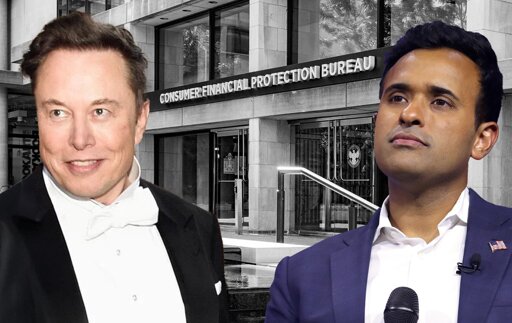Summary
Billionaires like Marc Andreessen, Elon Musk, and Vivek Ramaswamy are spreading false claims to discredit the Consumer Financial Protection Bureau (CFPB), a federal agency protecting consumers from fraud and abuse.
Andreessen falsely accused the CFPB of politically motivated “debanking,” despite no evidence.
This rhetoric aligns with the “DOGE” project, led by Musk and Ramaswamy, which aims to slash government regulations and programs under the guise of efficiency.
Critics warn this effort will harm public services, benefit billionaires, and push privatization at the expense of ordinary Americans.



The government has attacked me and my people throughout my life via the war on drugs using the “justice system”.
Kind of hard to be invested in a organization like that.
The CFPB and the DEA are a wee bit different, though. You can be angry at the latter and still want the protections of the former.
sorry, ml users only deal in absolutes when it fits their narrative.
I used to be on the ml server until I got fed up with the arbitrary moderation, so I try not to generalize.
You think big companies are going to treat you better once law and order is out of their way? You’re going to face more hardship than ever before.
Yeah, but private businesses won’t be arresting them for doing crack or meth or heroin or w/e. Just firing them for it showing up on a urine test, or just because they feel like it or w/e.
The hell they won’t, private businesses are going to be throwing people in labor camps and stockades.
While frustration with the status quo is understandable, abandoning the mechanisms of government only cedes power to those who are already disproportionately influencing it—special interests and billionaires. The government, flawed as it may be, is still the primary tool, and often the only tool, for enacting systemic change. By participating—through voting, organizing, and holding leaders accountable—citizens can challenge the status quo and push for reforms that better reflect the collective will.
Change doesn’t come from disengagement; it comes from working within and improving the systems that already exist. To give up on these mechanisms is to forfeit the opportunity to make meaningful progress.